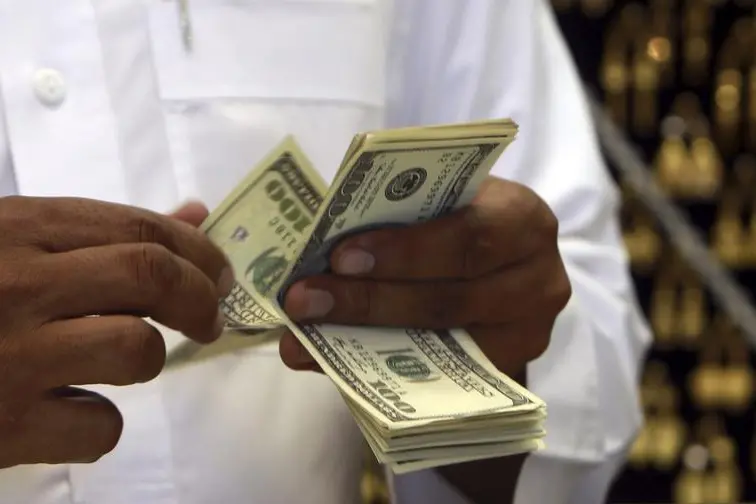PHOTO
TOKYO - The dollar hovered below a near two-decade high in Asian trading on Friday, having slipped overnight after two Federal Reserve policymakers said they favored a smaller rate rise than the 100 basis-points that investors were betting on.
The dollar index, which measures the currency versus six counterparts, edged 0.07% higher to 108.65, after reaching and then falling back from the highest since September 2002 at 109.29 on Thursday.
Traders had ramped up bets that the Fed would go for a super-sized tightening at their July 26-27 meeting after data on Wednesday showed consumer price inflation racing at the fastest pace in four decades.
But those bets were pared after Fed Governor Christopher Waller and St. Louis Fed President James Bullard both said they favored another 75 basis-point hike for this month, in spite of the inflation figures.
Fed funds futures currently indicate a 31% chance of a 100 basis-point increase, down from around 70% before the comments.
Even with the pullback, the dollar index is on track for a third winning week, up 1.58% from last Friday on both bets for an increasingly aggressive Fed and as worries about a resulting recession fueled demand for the currency as a safe haven.
"Momentum remains with the U.S. dollar," said Sean Callow, a currency strategist at Westpac, predicting scope for the dollar index to top 111 in coming weeks.
"The FOMC will have to remain hawkish both at the July meeting and beyond, solidifying U.S. dollar yield support."
Against the yen, the dollar eased 0.09% on Friday to 138.81 but was up 2% for the week and touched 139.38 overnight for the first time since September 1998 as U.S. Treasury yields widened the gap to their Japanese counterparts.
The Bank of Japan has been steadfast in its commitment to ultra-easy policy to support the economy, and is widely seen keeping stimulus settings steady at a meeting next week.
The euro was flat at $1.0019, after bouncing back from below parity on Thursday for a second day.
The single currency dipped as low as $0.9952 after Italian Prime Minister Mario Draghi offered to resign, but that was rejected by the country's president.
The euro zone is struggling with a worsening energy crisis as Russia shut down a gas pipeline for regular week-long maintenance, leaving markets jittery about whether it will come back online, with Russia saying it will depend on demand and sanctions.
Despite the uncertainty, the European Central Bank is likely to stick the quarter-point rate increase it has flagged for next week, but the outlook trails well behind the Fed, supporting the dollar's strength versus the euro.
Meanwhile, sterling edged 0.12% higher to $1.1840, after slumping to a 28-month low of $1.1761 overnight. It is down 1.57% since last Friday, heading for its worst week since early May as political turmoil casts a shadow over the currency.
The risk-sensitive Australian dollar added 0.1% to $0.6755, shrugging off data showing a sharper-than-expected decline in economic growth in key trading partner China.
The Aussie dropped to a two-year low of $0.66825 on Thursday, and is headed for 1.43% weekly loss.
(Reporting by Kevin Buckland; Editing by Simon Cameron-Moore)





















